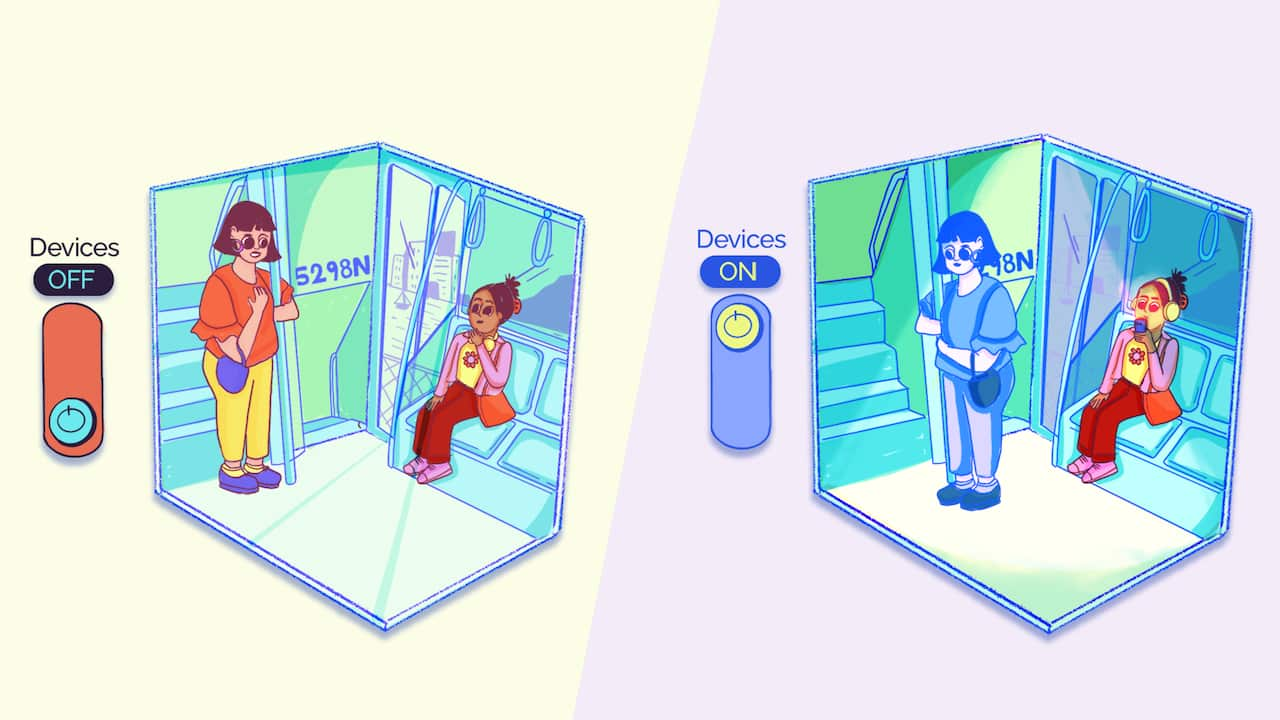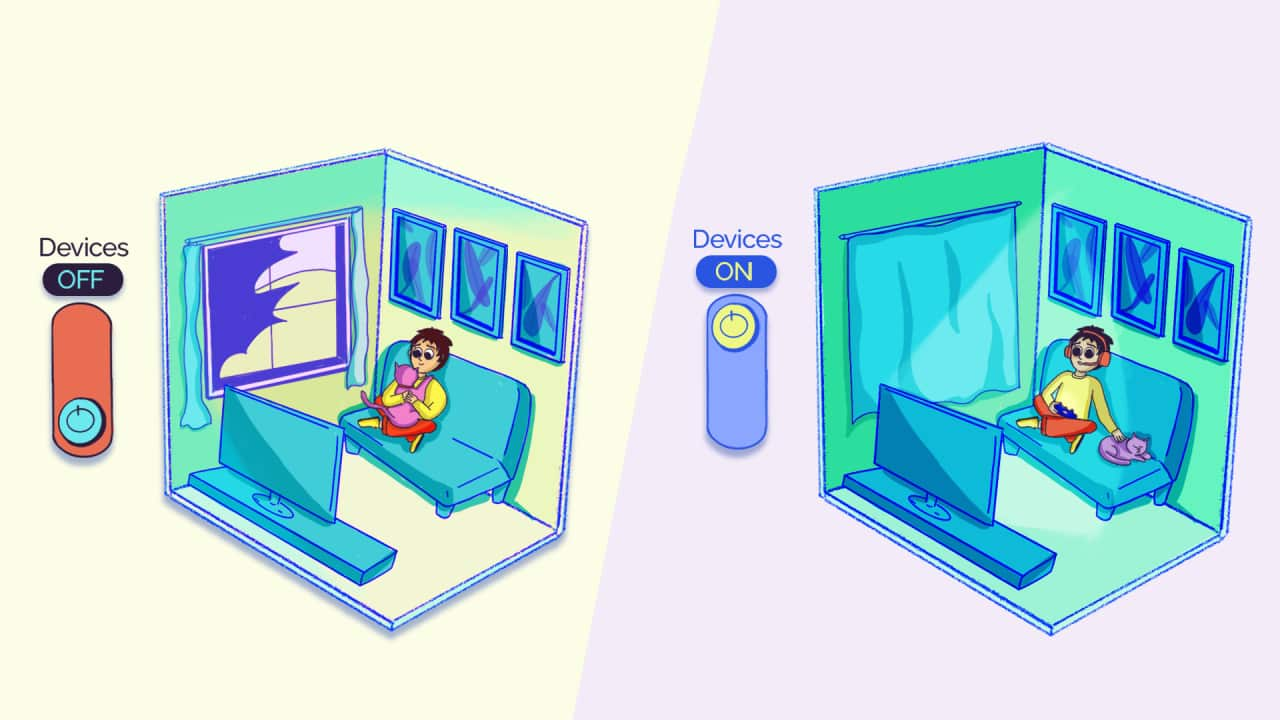Long summer days can turn into a nightmare for parents forced to wrestle devices off their children and fight over screen time.
While many parents understand the need for restrictions on the use of TV, computers, mobile phones, tablets and other devices — enforcing these can be difficult.
Paediatrician Dr Anthea Rhodes of The Royal Children’s Hospital in Melbourne, who is also a mother of four, says it’s normal for there to be resistance or difficulty in sticking to rules.
“There is, unfortunately, no silver bullet here. It’s hard work, and it’s about trying your best to strike a balance that keeps your young person safe and healthy whilst acknowledging that digital media use is absolutely part of daily life.”
Rhodes says time limits on screen use work best if the rules can be discussed and agreed upon with children, especially if they are older.
SBS News has previously looked at the and produced the quiz below to help parents better understand whether it’s problematic.
Screen time tips for younger children
Dr Mary Brushe is a researcher at the Kids Research Institute Australia, whose work focuses on screen use among children under five years old. Her tips for reducing the amount of screen time include:
- If no one is watching the screen, turn it off. Leaving a TV on in the background is quite common for many families, but for young children, this can be quite distracting and get in the way of other activities.
- Start small when you’re setting boundaries. For example, if you don’t want screens at mealtime, make this a boundary for the whole family and use it as a chance to connect and bond.
- Get outside in nature. Whether it’s finding a new local park to explore or a walk around the block, you and your kids will enjoy the benefits of physical activity and being outside.
- Young kids love getting attention from the caregivers in their lives. Make sure you spend some time talking, playing, reading and singing with them. A South Australian initiative — Words Grow Minds — has some excellent resources for free and tips to build these activities into your routine.
- Remember, not every day will be perfect and that’s okay. Don’t be too hard on yourself and know that you can always try again tomorrow.
Teenagers place value on interacting with their peers. Source: SBS News / Rosemary Vasquez-Brown
Tips for older children and teenagers
Involving children in setting screen limits makes it more likely they will cooperate.
A plan could include setting time limits for particular websites or games and storing devices out of reach overnight.
Fun visual aids, such as charts, can also help younger children understand and follow the rules.
It’s also important for children to understand what the consequences will be for not sticking to limits and that there is consistency in enforcing this.
When trying to find alternatives to screen use, psychology research fellow Dr Nandi Vijayakumar of Deakin University and the Murdoch Children’s Research Institute suggests reflecting on why your child is engaged with screens.
She recommends trying to recreate some of the online activities they enjoy in real life.
“Engaging children in this process and brainstorming together can help distract them and encourage creativity.”
When it comes to adolescents, Vijayakumar says they are often interested in connecting with their peers online.
“They might be more receptive to hanging out with their friends in person or participating in extracurricular activities that also involve their friends.”
The type of content can make a difference
Vijayakumar says educational and interactive content is more likely to have a positive impact on development if consumed in moderation.
However, caution should be used for some video games and social media platforms, which are specifically designed to keep children engaged for long periods, partly through offering rewards such as positive comments or the chance to earn tokens.
“Such constant stimulation can sometimes lead to problematic outcomes and even dependency on these digital experiences,” she says.
The use of social media is also more likely to lead to social comparisons, feelings of being left out and cyberbullying.
“For most kids though, some amount of screen time is okay for their development and health.”
Pasi Sahlberg, a professor in educational leadership at The University of Melbourne, says the use of digital devices at a very young age should come with a clear purpose.
“They could be linked to playing some memory games, reading or learning numbers, but with very close supervision of the parents.”
How some parents are reducing kids’ screen time
Caroline Maxwell is a lactation consultant who has a background in early childhood education, and has four children who range in age from five to 14 years old.
She says her children are expected to complete certain tasks around the house before they are allowed screen time and must ask her first. There are no screens during meals and no devices after dinner.
Maxwell often uses holidays to introduce digital detoxes. She also once disconnected her household’s only TV for an entire school term and says it made her kids calmer.
Mother-of-four Caroline Maxwell says it can be exhausting enforcing screen time rules. Source: SBS, Supplied / Rosemary Vasquez-Brown
“They were getting probably an hour more sleep … they were reading more … they weren’t fighting or bickering as much,” Maxwell says, adding that the only downside was the extra Lego and toy cars left scattered around the house.
She acknowledges that living on a farm in regional NSW, where her children have plenty of space for physical activity, makes it easier to avoid screens, but she still finds it difficult to maintain the rules day in and day out.
Children have a tendency to push boundaries, and it can feel exhausting to constantly reinforce rules, she says.
Take an interest in what your kids do online
Sahlberg urges parents to show an interest in what their child is doing in the digital space so that it’s not seen as a “separate universe”.
We should not leave kids by themselves with these devices — or we should limit that to an absolute minimum — and make sure that we care and are curious about what they do and how they feel about those things.
Professor Pasi Sahlberg, The University of Melbourne
If a child is reluctant to share their activities, this could be a sign there is something the parent should know about and discuss with them, Sahlberg says.
“The earlier we build this type of relationship and expectations with our kids, the more likely it is that that will sustain and continue when they grow older.”


